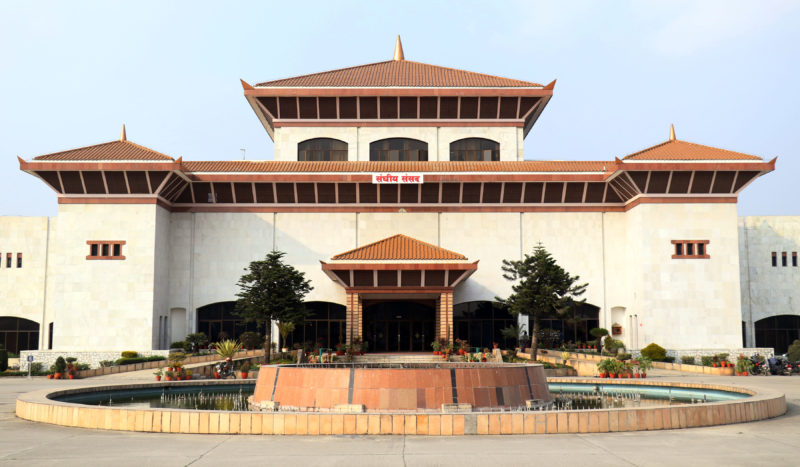Bill giving sweeping powers to CDOs tabled
Kathmandu, January 28
The Ministry of Home Affairs today registered the Internal Security Bill at the House of Representatives proposing to give broad powers to chief district officers, including the powers to mobilise provincial police, monitor the work of Nepal Police and provincial police and to inspect and monitor public service delivery in their districts.
The bill proposes that CDOs who will act as the federal government’s representatives and have the power to implement the federal government’s policies and directives.
It stipulates that CDOs will coordinate with the provincial government on matters of peace and security in the districts and will also have to coordinate with provincial internal affairs ministries to mobilise provincial police.
The bill states that chiefs of security bodies working in districts will be under CDOs’ control and district administration offices can open area administration offices and border administration offices as per their need.
It proposes to give CDOs the power to investigate complaints lodged against provincial police and submit reports to provincial internal affairs ministries and to notify the federal home ministry about the same. They can also submit a report to the provincial government recommending action against erring police personnel. They can inspect units of Nepal Police and provincial police and submit a report to the home ministry. Offices other than defence and courts will be under the care of CDOs and will be coordinated by CDOs.
The bill states that federal government will determine the boundaries of districts without altering the boundaries of provinces.
Internal Affairs and Law Minister of Province 3 Shalikram Jamkattel told THT that the bill intended to give CDOs the powers they enjoyed under the unitary system which was not in conformity with federalism. “This bill and police bill can create conflict between the federal and provincial governments,” he said, adding that it was the provincial governments’ jurisdiction to run the administration in districts.
“The federal government can keep CDOs in districts as its representatives, but the governing powers should remain with provinces,” he said. “The bill puts a question mark on the federal government’s commitment to federalism. What will happen if provincial governments open their own district administration offices?”
Advocate General of Province 2 Dipendra Jha said powers given by the bill to CDOs were against Article 162 of the constitution that gave provincial governments the power to run provincial administration. “This bill is another example of federal government’s intent to run a parallel government in provinces and treat provinces as development units.”
Proposals
- CDOs can mobilise any of the security forces, including Nepal Police and Nepali Army, to maintain peace and security and can deploy provincial police to quell protest and violence
- They can deploy federal police if provincial police fail to maintain peace and security
- CDOs can issue prohibitory orders to maintain law and order and can impose a fine up to Rs 10,000 or jail sentence up to three months on those who violate such prohibitory orders
- They can impose the curfew, declare riot-hit zones and carry out search and seize operation
- They can issue orders to arrest those who violate the law and can also issue the order to open fire against those who indulge in violence
- They can facilitate and coordinate development work and provide assistance in such work
- They can also inspect and monitor public service delivery and redress grievances regarding public services






